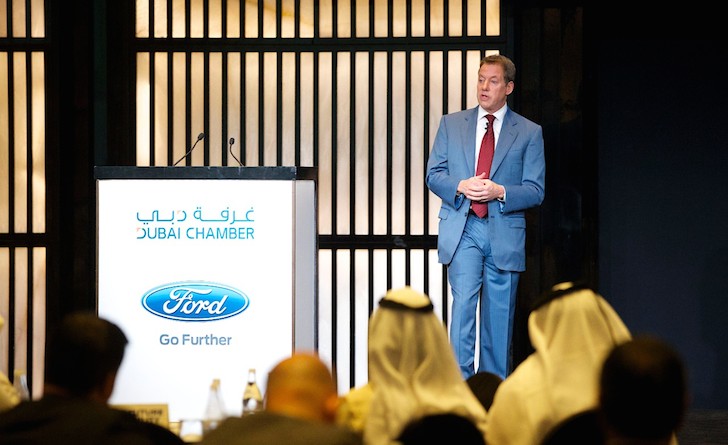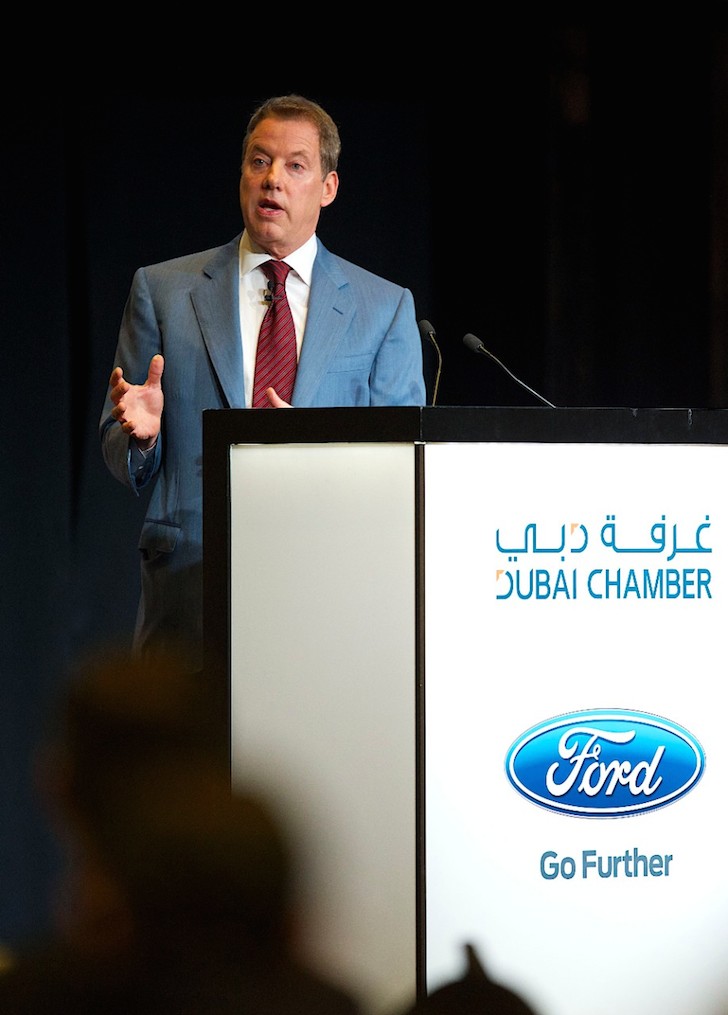Henry Ford’s great-grandson warns that simply building more roads won’t help gridlock.

Let’s put our serious hats on for a moment. It can’t have escaped your notice, if you live in a city, that traffic is getting worse. It doesn’t matter if you’re in Dubai, London, New York or Mumbai; it’s a global problem. More people and more cars mean more problems. How to solve them?
That was the subject of an address made in Dubai by Bill Ford, executive chairman of the Ford Motor Company. He came to the region to speak on the future of mobility at the Dubai Chamber, and his big message was that the automotive industry needs to change in a major way.
“Our industry has made some of its greatest achievements when faced with a serious challenge,” Ford said. “This is one of those moments.
“Today there are about one billion vehicles on the road worldwide. But with more people and greater global prosperity, that number is expected to double, and possibly double again, by 2050. This will create “global gridlock” on a scale the world has never seen before.”

Ford said following the previous paths taken to alleviate such problems would not work, and that smart technology was needed – across all transport infrastructure, not just cars.
“My great-grandfather once said that before he invented the Model T, ‘If I had asked people then what they wanted, they would have answered ‘faster horses,’” he said.
“We are building smart cars, and they will continue to get smarter. But we also need to build smart roads, smart parking, smart public transportation systems and more – and we need to connect them all using wireless telecommunications. Why? Because when you link the vehicle to the world around it, you begin to attack global gridlock. To keep traffic moving, we need an integrated transportation network that uses real time data to optimise personal mobility on a massive scale.”
Ford used Abu Dhabi’s Masdar project as an example of the technology we can expect to see in the future, and said such developments could have societal benefits way beyond mere transportation.
It’s interesting stuff, and if you turn to page 2, you can read the whole transcript of his speech.
Let us know in the comments section below what you think about the future of mobility – do you welcome the smart car and clever infrastructure?



